Earth Science Teaching Resources
Browse printable Earth science worksheets, digital activities and a whole lot more to bring the wonders of our planet to life in your elementary classroom!
This collection of NGSS curriculum-aligned teaching resources has been created by our expert teacher team to save your valuable lesson planning time with differentiated and editable science printables and Google slides.
Looking to learn more about the Earth science curriculum for elementary school, or just need some fresh ideas to engage your students? Read on for a primer from our teacher team!
What Is Earth Science?
We know this one may seem obvious — after all, it's right there in the name! But how do you explain this one to your students? Here's a kid-friendly definition you can use!
Earth Science is the study of our planet Earth and it's a chance to learn about the different layers of the Earth, rocks and minerals, weather patterns and climate, water and oceans and natural resources.
Earth scientists use different tools to study the Earth, including looking at rocks, studying the weather, and even using satellites to take pictures from space. By learning about Earth science, we can better understand the world around us and how we can protect and take care of our planet.
What Does Earth Science Look Like in Elementary School?
When we talk about Earth science (or geology) in elementary school, we aren't pulling out reference tables or digging deep into climatology.
On an elementary level, Earth science covers everything from the layers of the Earth to plate tectonics to erosion and weathering. The goal is to provide students with a basic understanding of the Earth and its processes and to develop kids' scientific inquiry and critical thinking skills, laying the groundwork for the more focused Earth science courses available on a high school level.
- Plus Plan
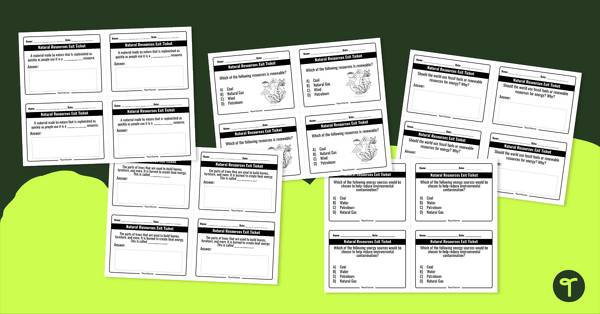
Natural Resources – Exit Tickets
Assess student understanding of natural resources with this set of exit tickets.
- Plus Plan
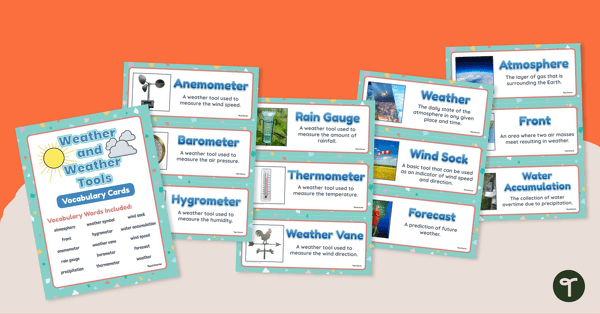
Weather & Weather Tools Vocabulary Cards
Promote science vocabulary development with this set of 15 weather and weather tools vocabulary cards.
- Plus Plan
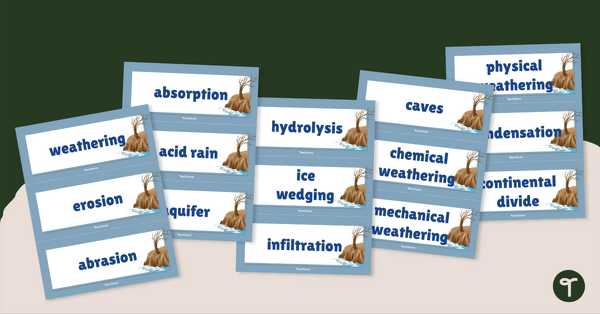
Weathering and Erosion Word Wall Vocabulary
Expand your students' science vocabulary with a weathering and erosion word wall.
- Plus Plan
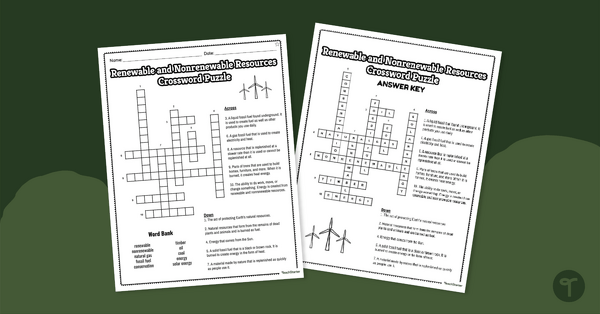
Renewable and Nonrenewable Resources Crossword Puzzle
Reinforce science vocabulary with a renewable and nonrenewable resources crossword puzzle.
- Plus Plan
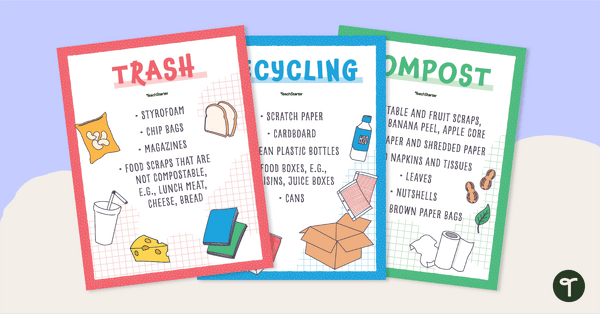
Trash, Recycle, and Compost Posters
Remind your students where to put their waste with these trash, recycling, and compost posters.
- Plus Plan
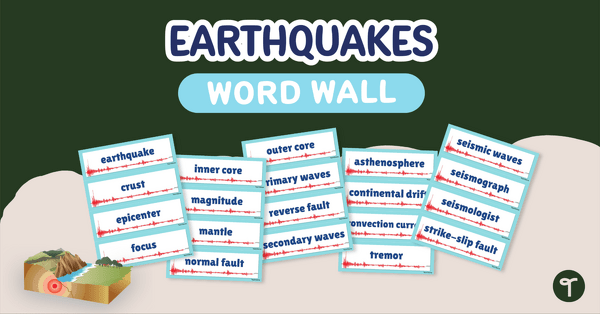
Earthquake Word Wall Vocabulary
34 earthquake related vocabulary cards for a word wall.
- Plus Plan
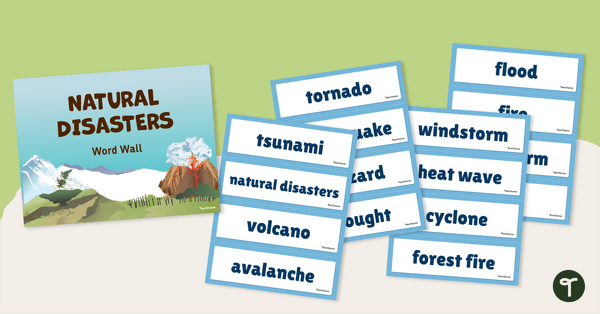
Natural Disasters Word Wall Vocabulary
Use this teacher-created resource to explore natural disaster vocabulary with your elementary students.
- Plus Plan
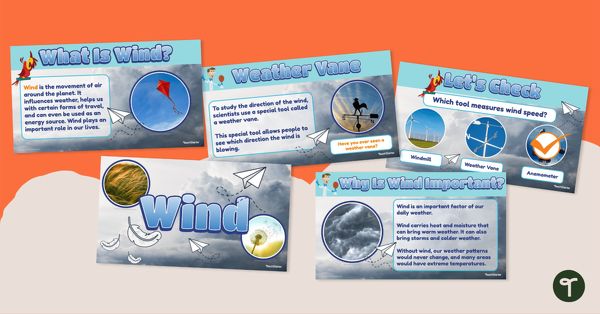
All About Wind – Instructional Slide Deck
Investigate the importance of wind and how it is measured with this 14-slide instructional slide deck.
- Plus Plan
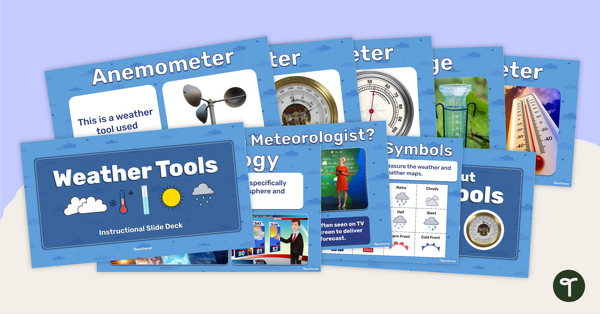
Weather Tools – Instructional Slide Deck
Learn about different weather tools and how to read a weather map with this 20-slide instructional slide deck.
- Plus Plan
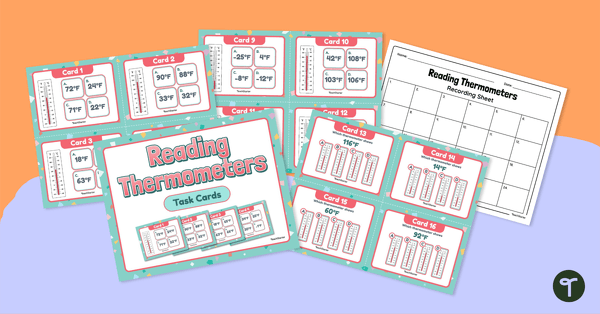
Reading Thermometers – Task Cards
Practice reading thermometers with this set of 24 task cards.
- Plus Plan
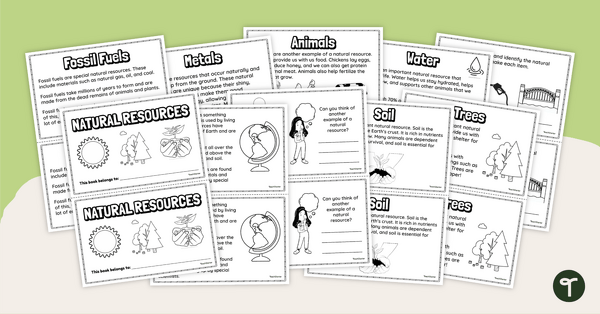
Natural Resources Mini Book
Learn about natural resources with this printable mini book.
- Plus Plan
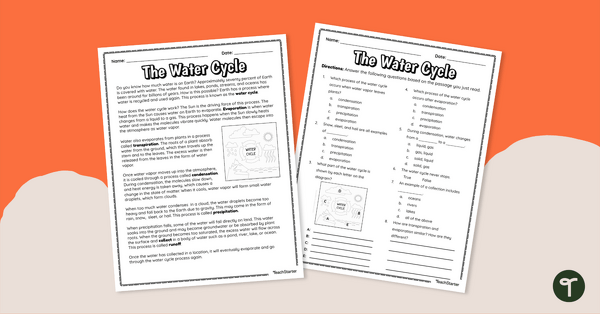
The Water Cycle – Reading Comprehension Worksheet
Enhance your students’ comprehension and science vocabulary skills with this water cycle worksheet.
- Plus Plan
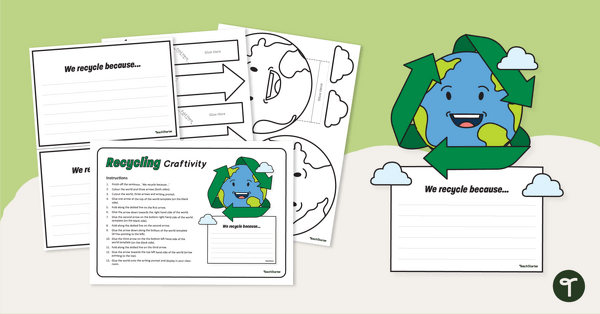
Recycling Craftivity - We Recycle Because...
Write about why we recycle and create this recycling craft to display in the classroom.
- Plus Plan
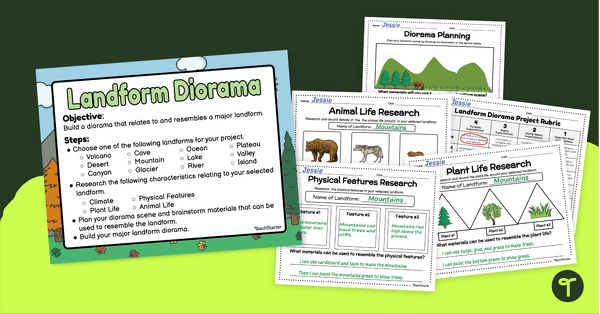
Landform Diorama Project
Create and display a diorama of a landform with our landform project planning and creation templates.
- Plus Plan
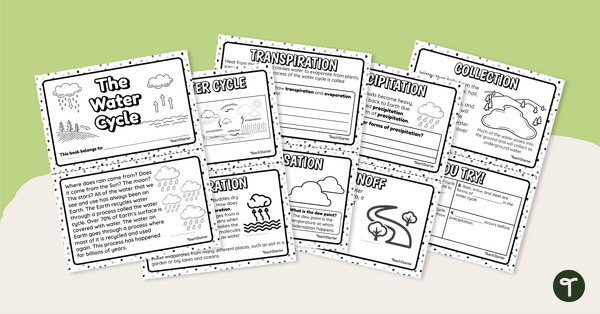
Water Cycle Mini-Book (In Depth)
Use this 10-page mini-book when learning about the water cycle.
- Plus Plan
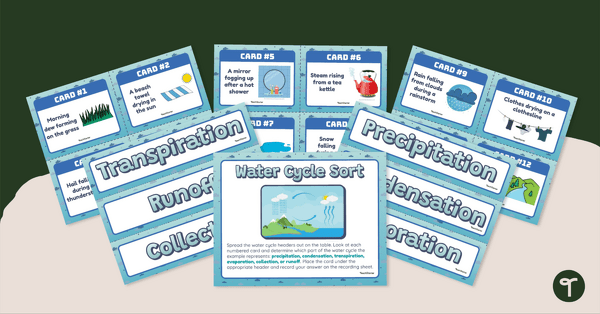
Water Cycle Sort – Sorting Activity
Use knowledge of the steps in the water cycle to categorize examples with this sorting activity.
- Plus Plan
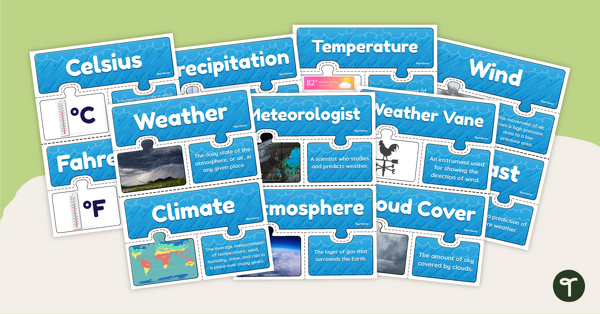
Weather Vocabulary Puzzles
Make your weather lessons more fun with a set of 14 weather vocabulary puzzles.
- Plus Plan
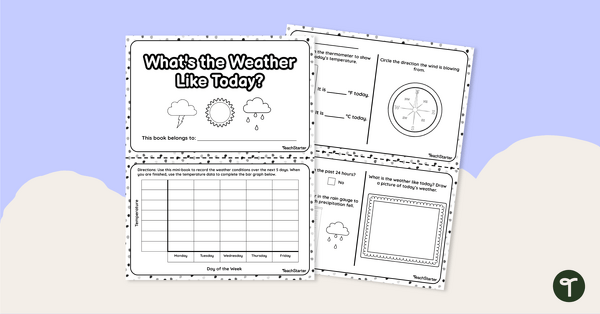
What's the Weather Like Today? – Mini-Book
Measure, record, and graph weather information with a printable mini-book.
- Plus Plan
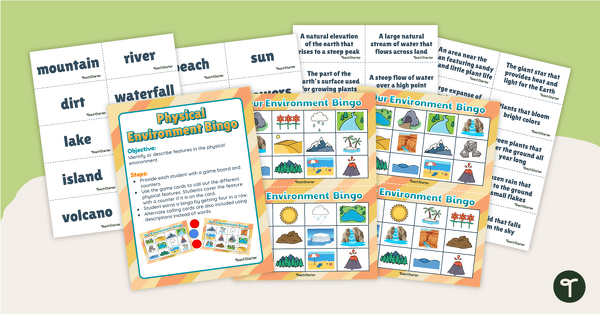
Our Physical Environment Bingo
Build and master the ability to identify land and water formations in the physical environment with a game of Physical Environment Bingo!
- Plus Plan
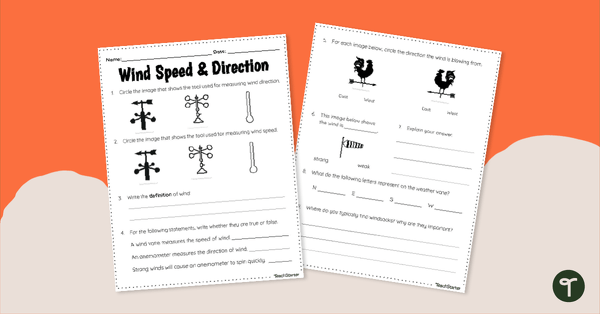
Wind Speed & Direction – Worksheet
Demonstrate understanding of wind speed and direction with this worksheet.
- Plus Plan
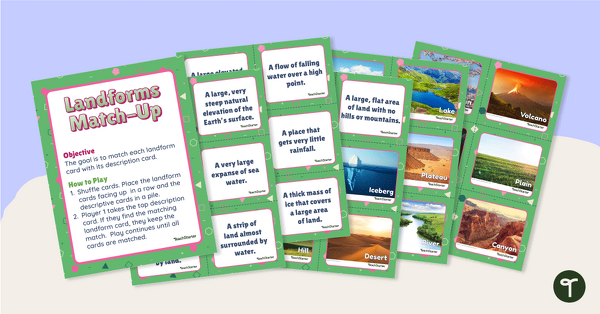
Landforms Vocabulary Match
Identify the major landforms of the world with a matching activity.
- Plus Plan
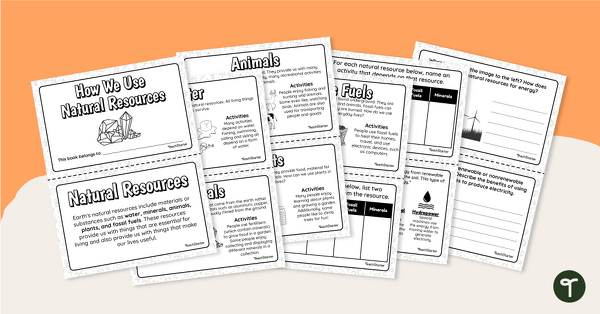
How We Use Natural Resources Mini-Book
Read and learn about how we use natural resources with this 12-page mini-book.
- Free Plan
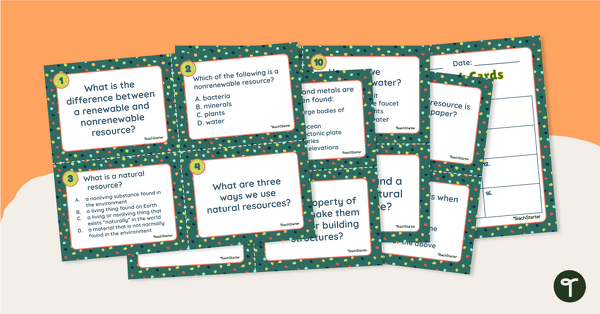
Natural Resources Task Cards
Answer questions about natural resources and their uses with this set of 16 task cards.
- Plus Plan
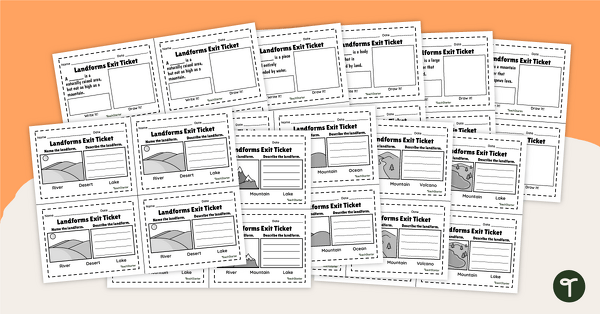
Types of Landforms - Exit Tickets
Explore the features of various landforms with this set of 20 exit tickets.
- Plus Plan
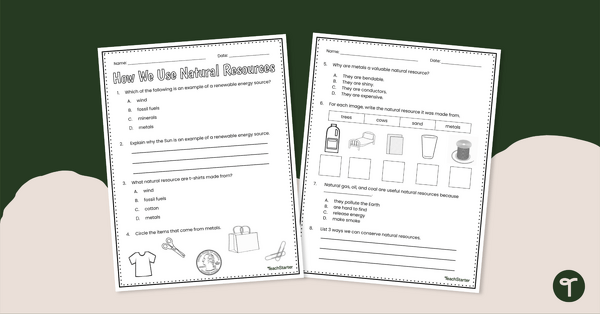
How We Use Natural Resources – Worksheet
Explore the characteristics of natural resources and what makes them useful in products and materials with this worksheet.
- Plus Plan
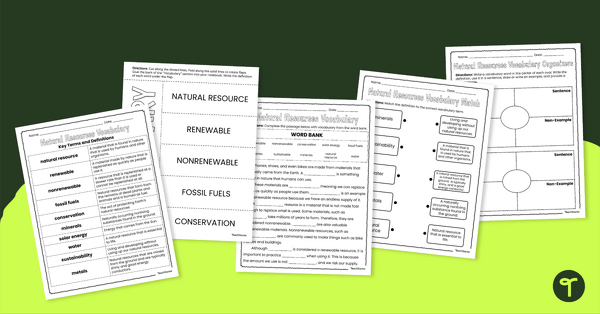
Natural Resources Vocabulary Worksheets
Practice and review vocabulary terms associated with natural resources with this worksheet pack.
- Plus Plan
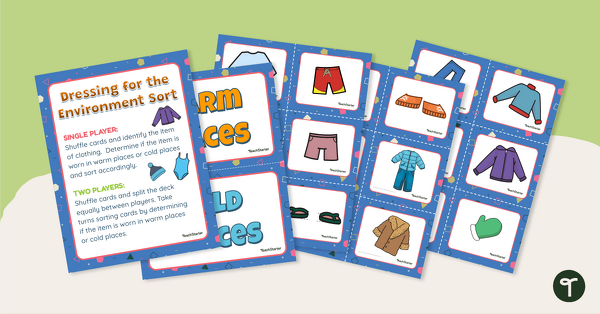
Dressing for the Physical Environment Sorting Activity
Help children learn about dressing for the environment by sorting clothing items into categories for warm climate and cold climate.
- Plus Plan
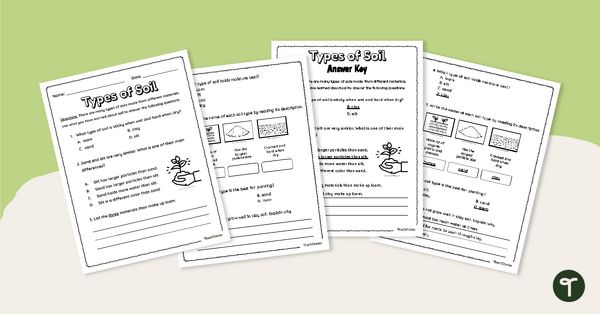
Types of Soil Worksheet
Identify and describe different soil types with this worksheet.
- Plus Plan
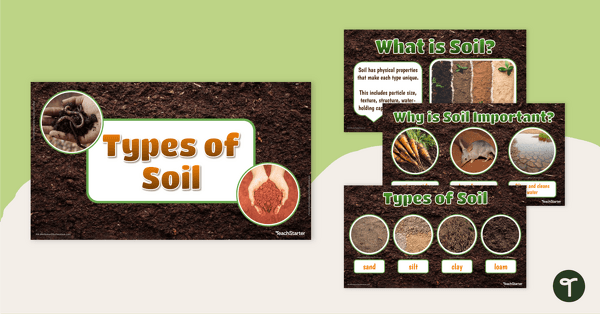
Types of Soil – Teaching Presentation
Practice identifying different types of soil with this 18-slide teaching presentation.
- Plus Plan
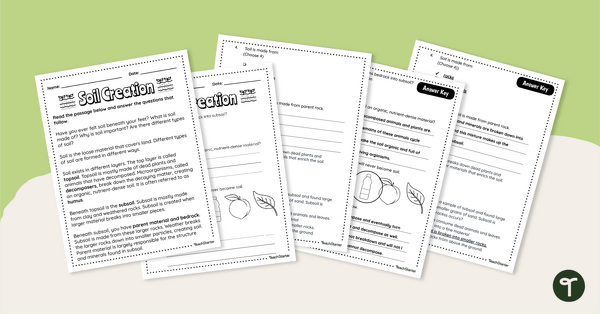
Soil Creation – Worksheet
Integrate reading and science with this 7-question comprehension worksheet about soil.
- Plus Plan
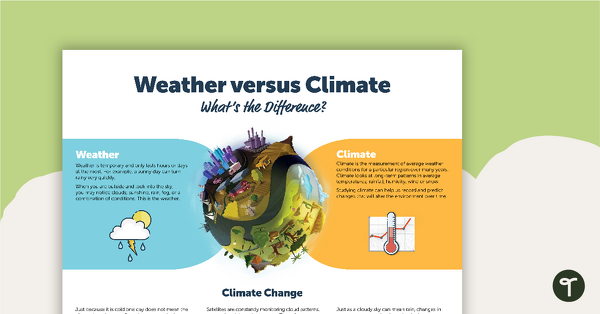
Weather Versus Climate Poster
A poster explaining the difference between weather and climate.
- Plus Plan
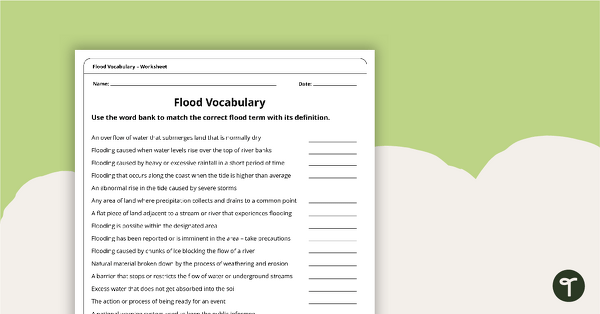
Flood Vocabulary Worksheet
A vocabulary task for students to use when learning about floods.